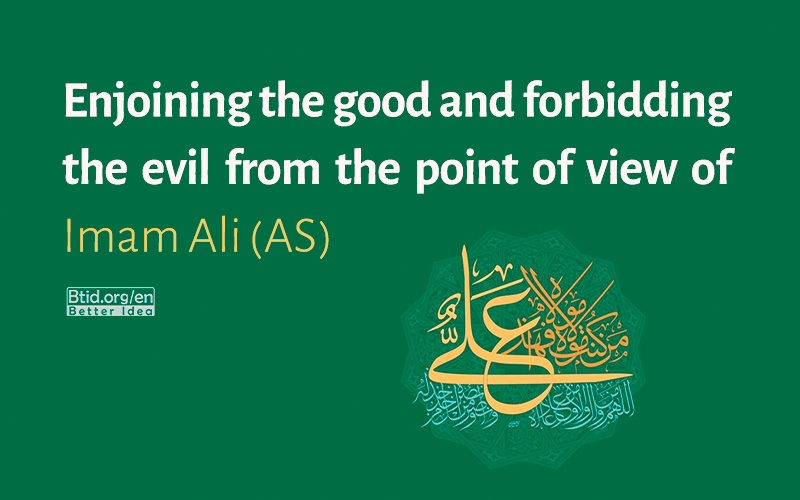-Every Muslim is obliged to be responsible for his obligations, to leave the Haram and forbid others from doing it. Now, if it is assumed that a person is not a man of action, isn't the duty of enjoining the good and forbidding the evil on him? We examine it from the perspective of Imam Ali (a.s):

Enjoining the good and forbidding the evil
Enjoining the good and forbidding the evil from point of veiw of Imam Ali (a.s)
Enjoining the good and forbidding the evil from the point of view of Hazrat Ali (AS) is of such great importance that he says: " All good deeds and even Jihad in the way of God, in front of enjoining good and forbidding evil, are no more than mouthwatering in front of a vast sea”.[1]
It is interesting that in letter 31 of Nahj al-Balagheh to his son, in addition to bequeathing in various issues, he also bequeathed to enjoin what is good and forbid what is evil: "My son, enjoin what is good in your life, gradually yourself will become a person of good deeds and also forbid the evil...” [2]
A person who enjoins good deeds and invites people to do good deeds will gradually get used to it until he is completely among the righteous. Because the premise of all human beings is that the one who invites to do good must first be a good person. Otherwise, no one will care about his words. And maybe because of this sense of responsibility for the expectations of others, it forces a person to gradually accustom himself to good deeds.
The one who forbids evil must first not be a person of the same evil. Otherwise, his words may not affect the audience. Of course, sometimes it is possible that someone has done negativity in the past and realized its disadvantages through experience, and then shares his experiences with others in order to prevent others from repeating it.
The Holy Qur'an says about this: "O you who believe, why do you say what you do not do yourself?"[3] The meaning of the verse is not that if you don't act yourself, don't order or forbid others, but the noble verse is a reprimand for why you don't stick to your words, it's an ugly thing for a person not to act on what he says.
References:
[1] Nahj al- Balaghah, Hekmat No. 374 وَ مَا أَعْمَالُ الْبِرِّ كُلُّهَا وَ الْجِهَادُ فِي سَبِيلِ اللهِ عِنْدَ الْأَمْرِ بِالْمَعْرُوفِ وَ النَّهْيِ عَنْ الْمُنْكَرِ إِلَّا كَنَفْثَةٍ فِي بَحْرٍ لُجِّيٍّ
[2] Nahj al-Balagha, Letter No: 31 ... وَ أمُرْ بِالْمَعْرُوفِ تَکُنْ مِنْ أهْلِهِ وَ اَنْکِرِ الْمُنكَر
[3] Quran [61–2] يَا أَيُّهَا الَّذِينَ آمَنُوا لِمَ تَقُولُونَ مَا لَا تَفْعَلُونَ



